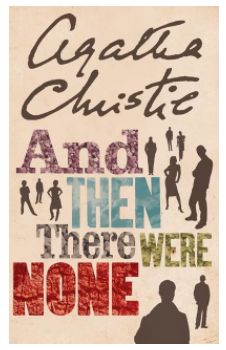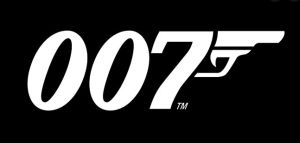In this article, we discuss two recent trade mark registration decisions. The first involves a well-known book title, the second well-known film theme music.
Objections to registration – and then there were none
We don't often discuss trade mark matters in India but the recent case of Agatha Christie Ltd v Registrar of Trade Marks is certainly worth discussing.
A company called Agatha Christie Ltd (a company that is operated by a great-grandson of the famous author) filed an application to register a trade mark in India. The trade mark filed was the term "And then there were none". Those of you that take the view that, when it comes to great literature, mystery novels come second only to IP articles written by ENSafrica, will know that "And then there were none" is the title of a very famous Agatha Christie novel that was published some 80 years ago.

The trade mark application covered three classes of goods and services: 9, 16 and 41, so essentially printed matter books, electronic media and publishing services. The registry rejected the application on the basis that consumers would not see this term as a trade mark. The registry described the term as "a kind of mark where one needs to educate the people that it's not just any phrase but a trademark." It made the point that there was no proof of any trade mark usage of the phrase.
The company took this refusal on appeal to the Delhi High Court. The judge seemingly regarded the Registry's refusal as something of a mystery, ruling that the mark was most certainly registrable. The judge said that the title of Agatha Christie's most famous book is prima facie capable of creating an association between the name and the plaintiff, a company that was formed by the author herself. The judge said that the trade mark is not descriptive and "does not suffer from any of the infirmities that the Act contemplates." The exclusions set out in the legislation "have to be regarded as exhaustive... absent any of these circumstances, therefore, a request for registration of a trademark cannot be refused."
Interestingly, the judge categorised the right to register a trade mark as one falling under article 19(1)(g) of the Indian Constitution, meaning that a refusal should be well reasoned and fall within the statutory grounds. The judge said this:
"Essentially if the mark is distinctive, and is not identical or confusingly or deceptively similar to any earlier mark which is registered or in use from a prior date in respect of similar goods or services, or which results in the passing off by the applicant of its goods or services as those of another, registration of the mark is a matter of right."
The sound's Bond.. James Bond
A sound can function as a trade mark and, in certain circumstances, it can even be registered. EU guidelines say that when it comes to sound marks the sign must have a resonance and the sound must be capable of being perceived by the relevant public as an indication of commercial origin. But trade mark registrations for sounds are rare.
An interesting sound mark case that has come up involves the James Bond theme music. A company called Danjaq filed an EU trade mark application to register 25 seconds of the music – the application is in classes 3, 9, 14, 16, 18, 25, 28, 32 and 34, and it covers diverse goods such as comic strips, computer games, films, jewellery, watches, clothing, toys and beverages.

The application was refused on the basis that the sound is incapable of functioning as a trade mark, and that it won't be perceived by consumers as a trade mark. The Trade Mark Office said that the James Bond music may be dramatic but it is not memorable. It said that the music would not be perceived as an indication of origin for many of the goods covered. It took the view that the music was too long to be distinctive and memorable.
This refusal was taken on appeal. The Board of Appeal ("BOA") overruled the refusal, and held that the sound mark contains a melody and that it has a resonance. It said that the refusal lacked reasoning, and had been based simply on the claim that the mark was too long. The BOA said that "there can be no stricter rules applied as regards the length of sound marks, or even traditional marks, that would render them memorable and distinctive as a result."
The BOA made the point that there is no requirement that consumers must memorise the sign exactly and in its entirety in order for the sign to be registrable. It noted that consumers generally take greater note of the first part of a sign, something that it certainly recognised with word marks. In this case the first part of the mark was the "characteristic trumpet fanfare".
The BOA concluded that the sound is an indicator of both commercial origin and artistic origin, that being the company that produces the James Bond films.
So, there you have it – two well-reasoned judgments allowing for the registration of unusual marks. It's a good day for trade marks!
Reviewed by Ilse du Plessis an Executive in ENSafrica's IP department.
The content of this article is intended to provide a general guide to the subject matter. Specialist advice should be sought about your specific circumstances.

